
IN PICTURES: Orphans of Gaza
Published date: 31 January 2015 01:29 GMT
|
Last update: 9 years 9 months ago
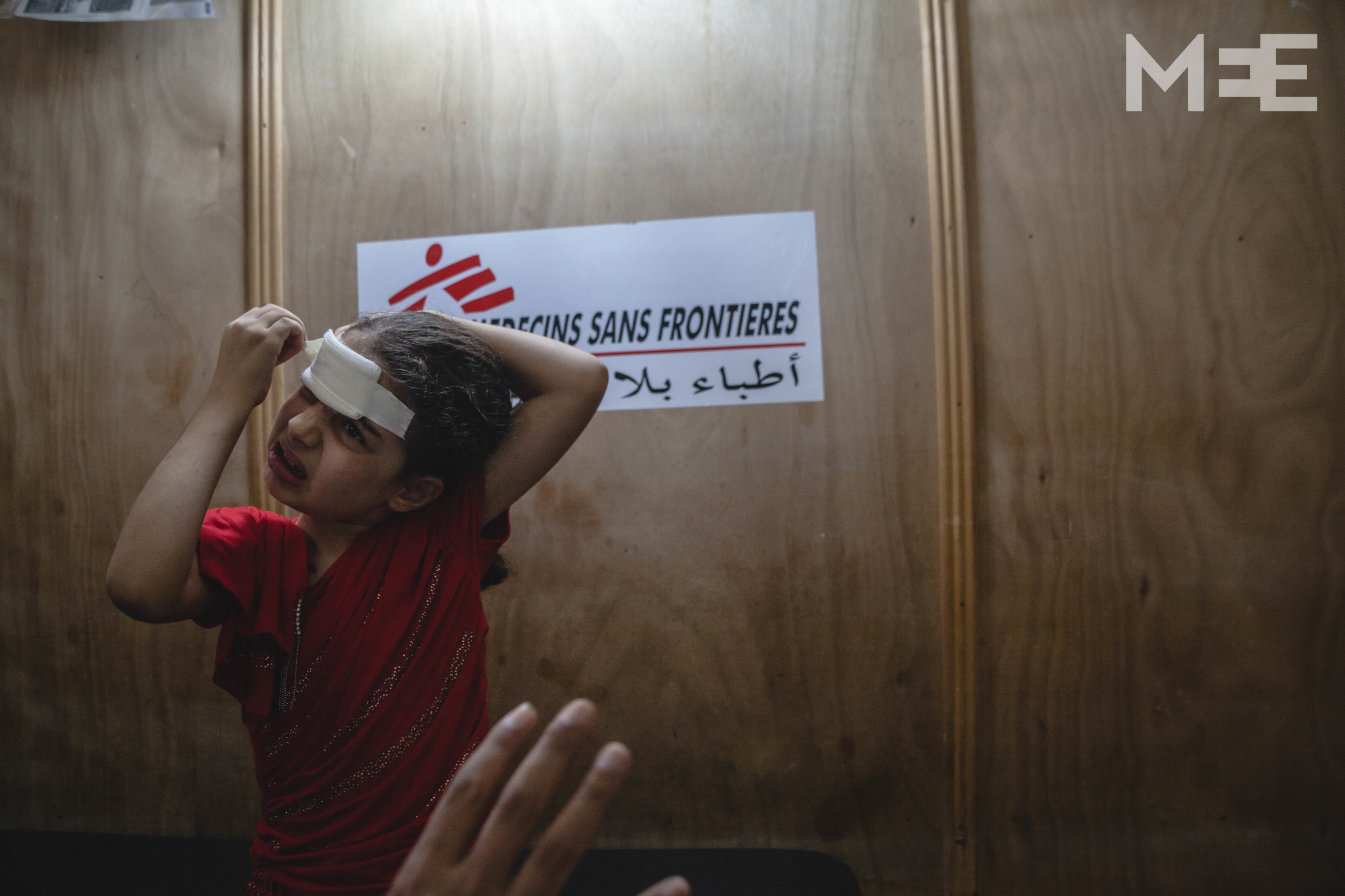
On her daily visit to the nurses at Doctors Without Borders in Gaza City, Bisan Daher, 7, tries to take her bandages off herself for the first time. Bisan’s house was destroyed in an Israeli air raid in northern Gaza. After being stuck in the rubble for five hours, rescue workers were finally able to reach her. The same attack killed both her mother and her father, as well as several brothers. (MEE/Andrea Dicenzo)
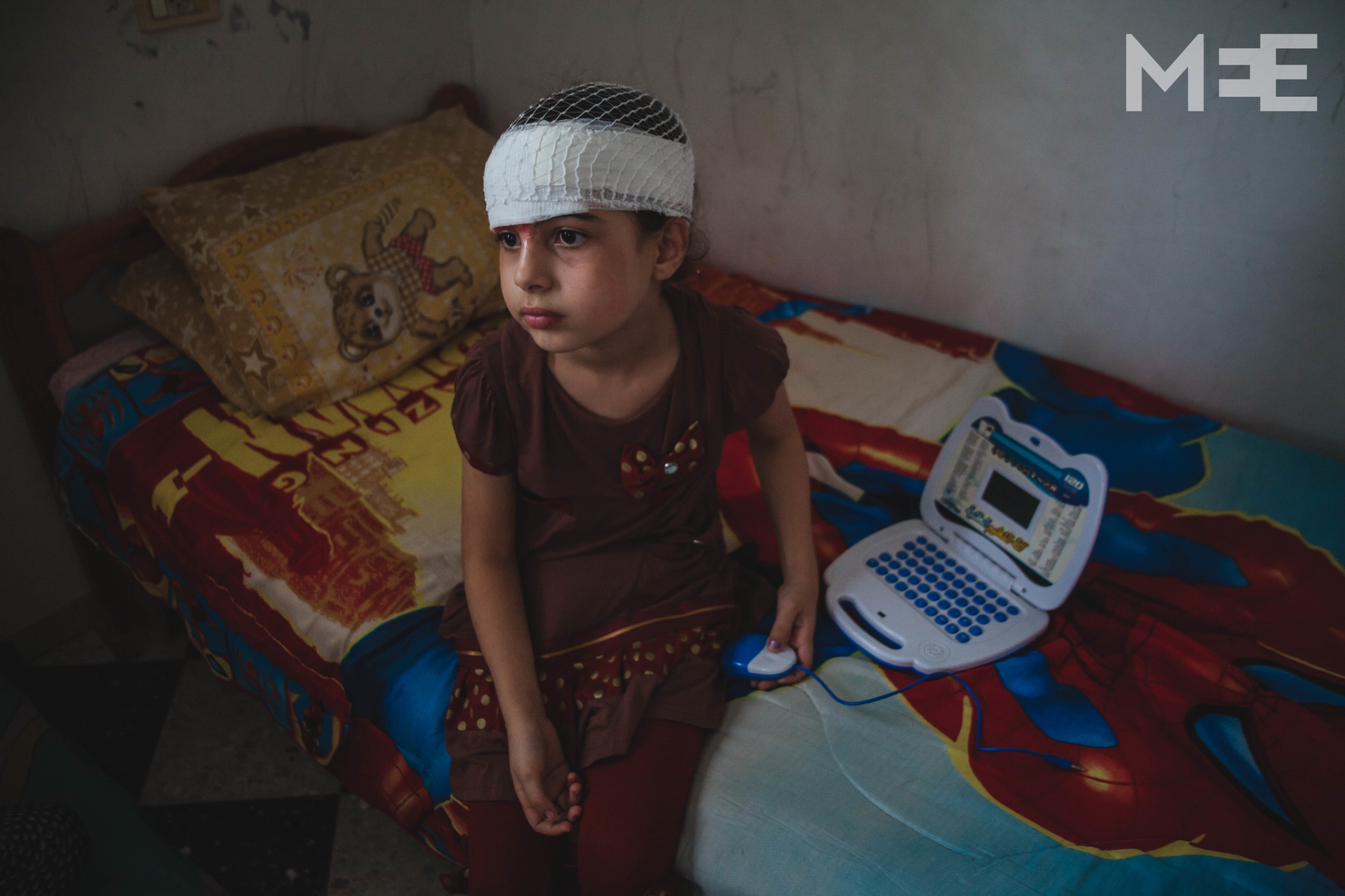
Bisan is not very social. As her physical injuries are starting to heal, her psychological ones are just starting to show themselves. She spends a lot of time on her own and struggles to socialise with children close to her age in her new living arrangement. (MEE/Andrea Dicenzo)
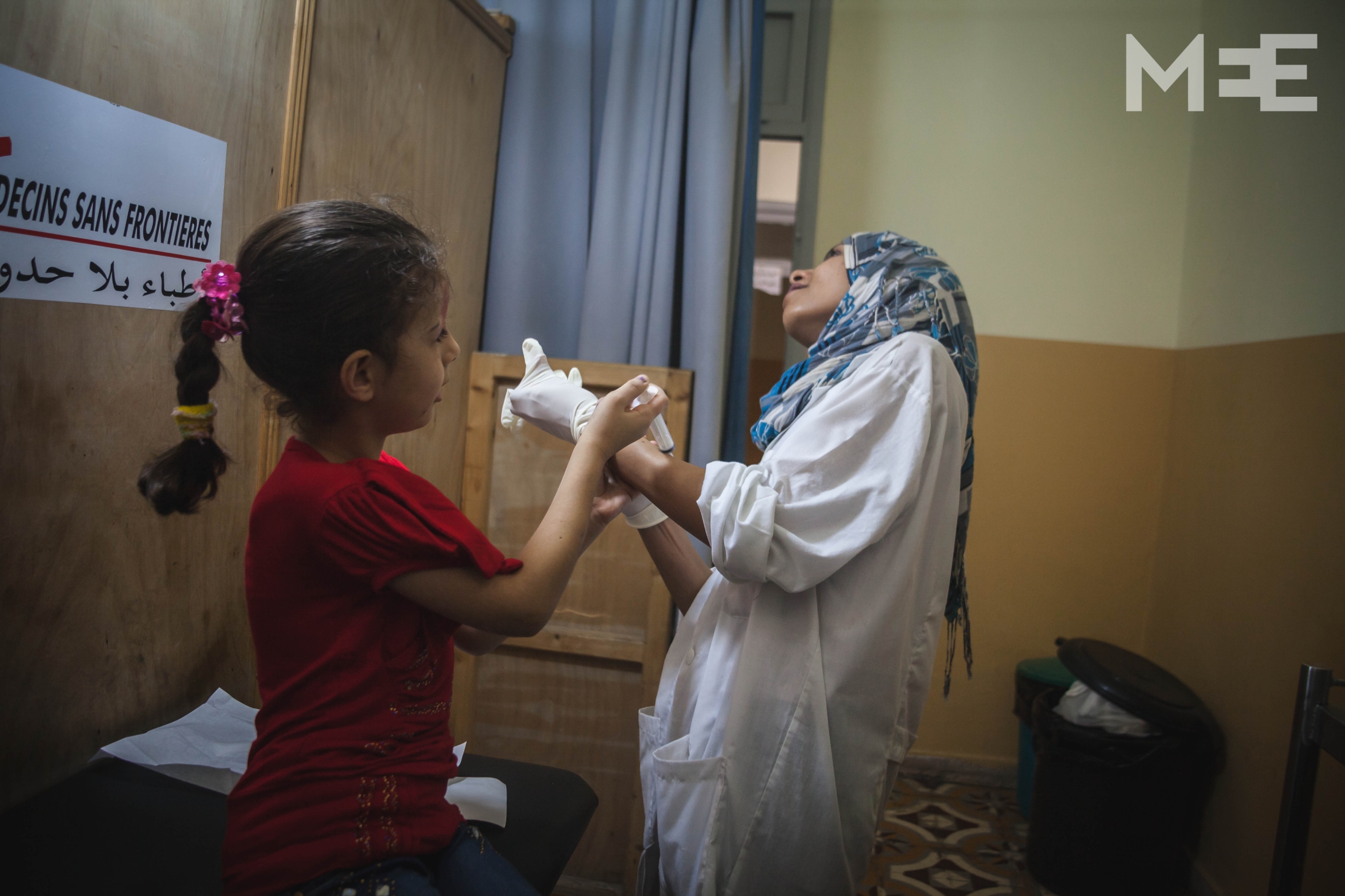
Nurse Nama Abu Khousa pulls Bisan out of her shell by playing games with some of her nursing equipment. (MEE/Andrea Dicenzo)
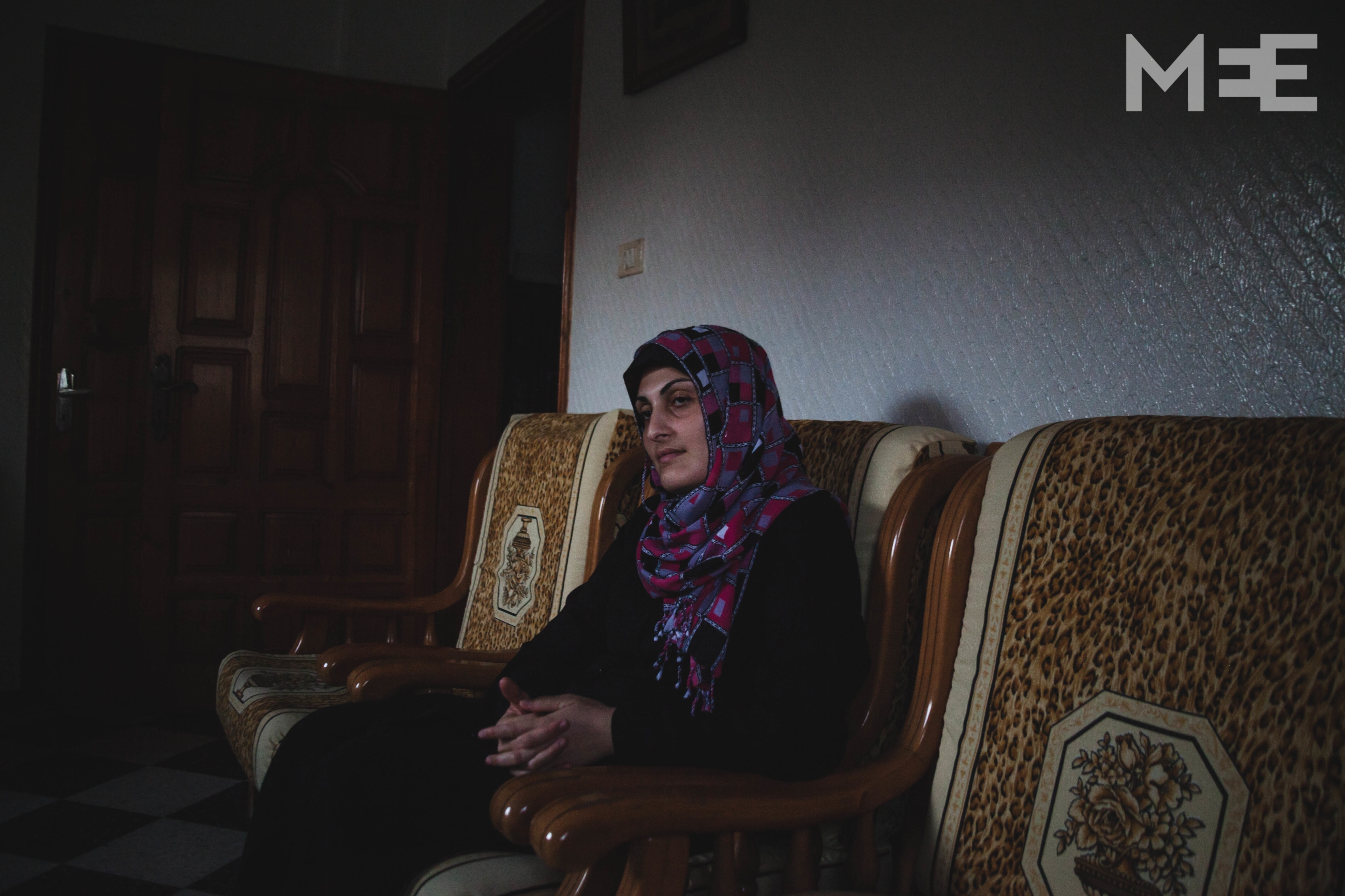
Adoption is not allowed in Islam. Most children who are orphaned go to extended family. Bisan’s older sister, Noha, is now taking on the role of mother to Bisan, as well as dealing with the loss of her parents. (MEE/Andrea Dicenzo)

Bisan is lucky to have a family member old enough to take on the responsibly of caring for her. In case there is no extended family, or no family members claim responsibility for the child, children will be taken to Gaza’s only children's home, al-Amal Orphanage. (MEE/Andrea Dicenzo)
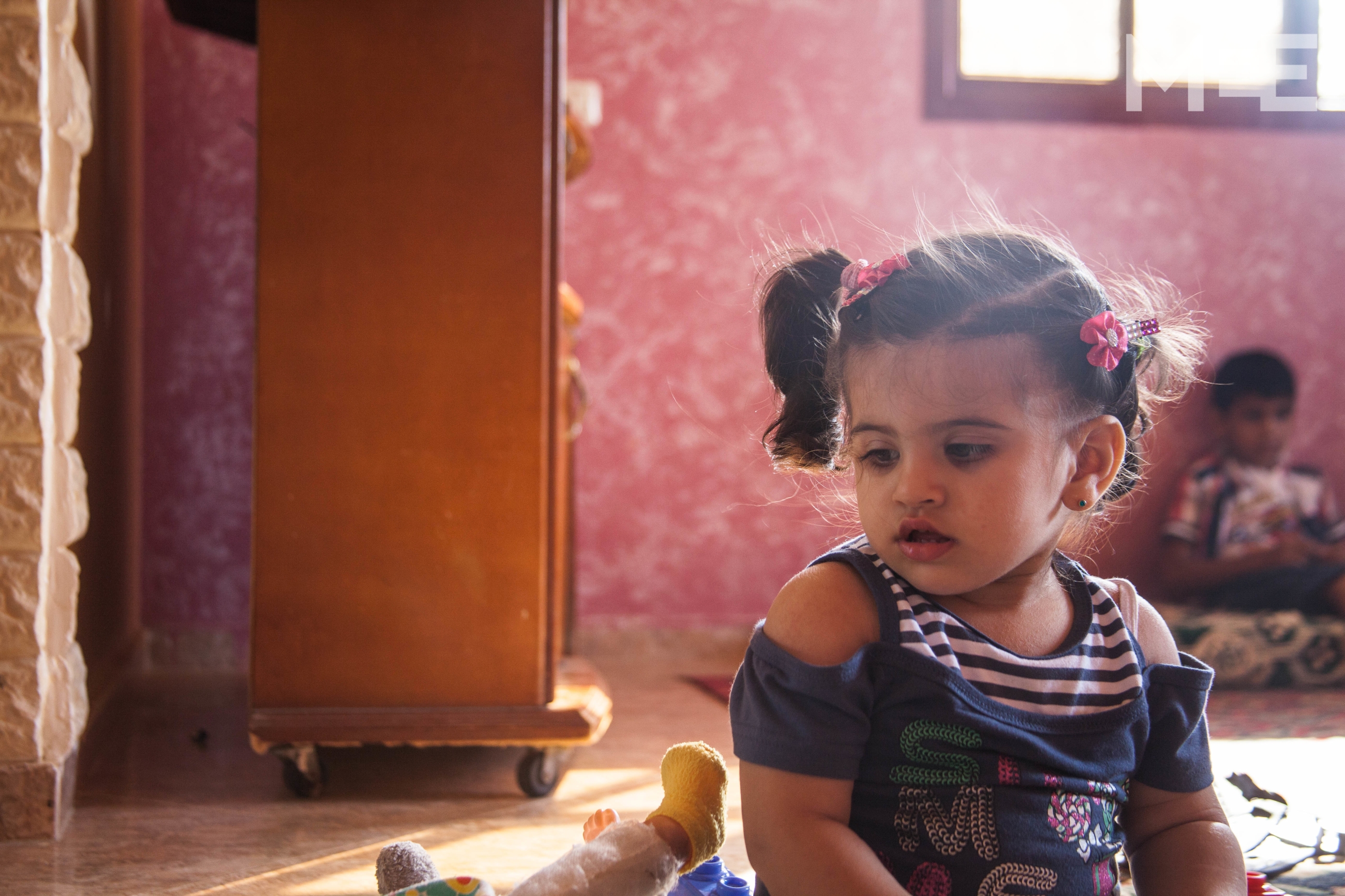
Jana Abu Jaber, 2, lost both her mother and her father in an attack which hospitalised both her and her brother Yamen after her home was bombed in al-Buriej refugee camp in Central Gaza Strip. (MEE/Andrea Dicenzo)
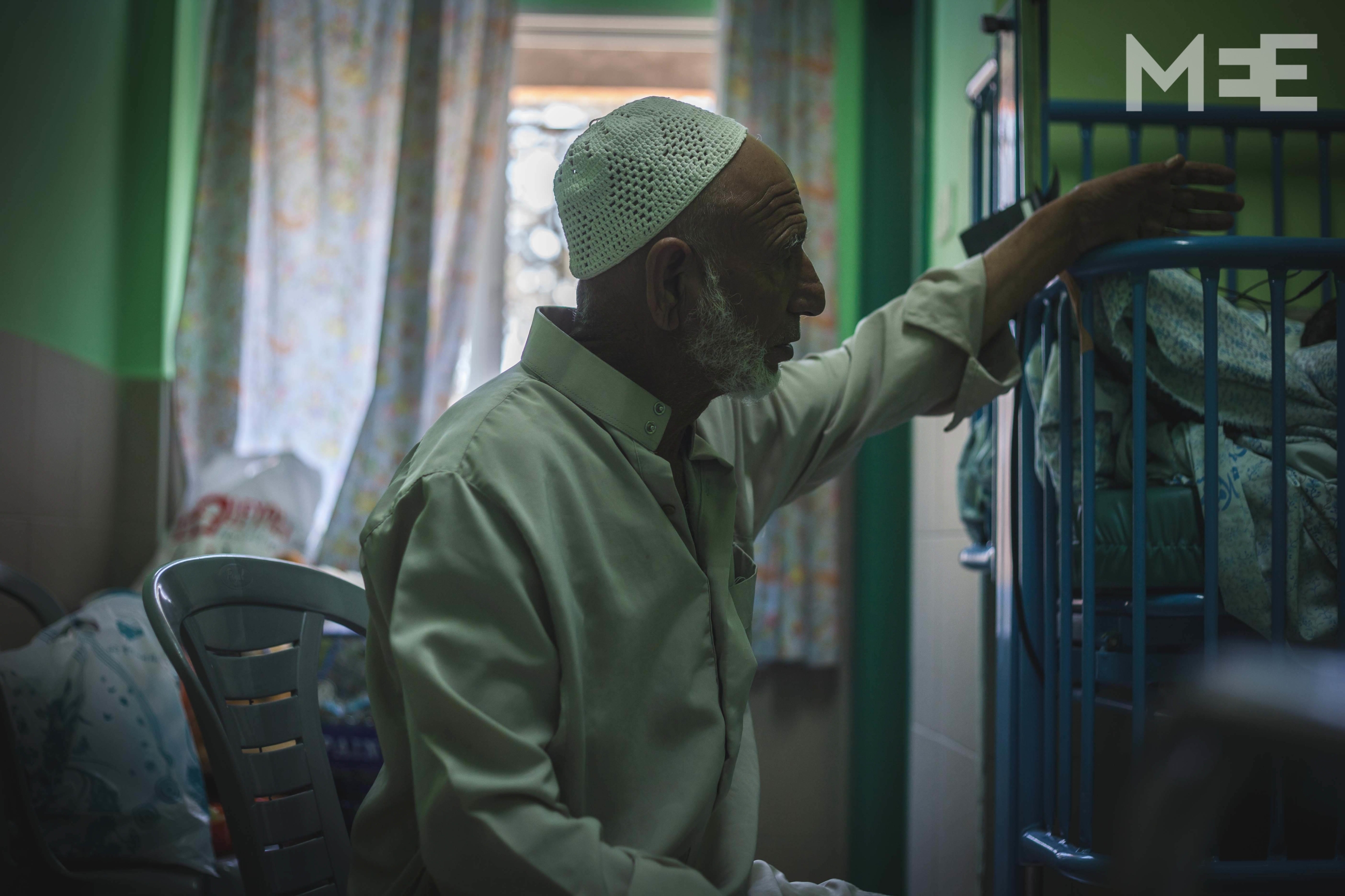
Yamen was escorted by his grandfather to al-Makassed Hospital in East Jerusalem where he was treated for full body burns. Acutely aware of the shock his grandson was in, his grandfather refused to allow photographers to photograph the young child. (MEE/Andrea Dicenzo)
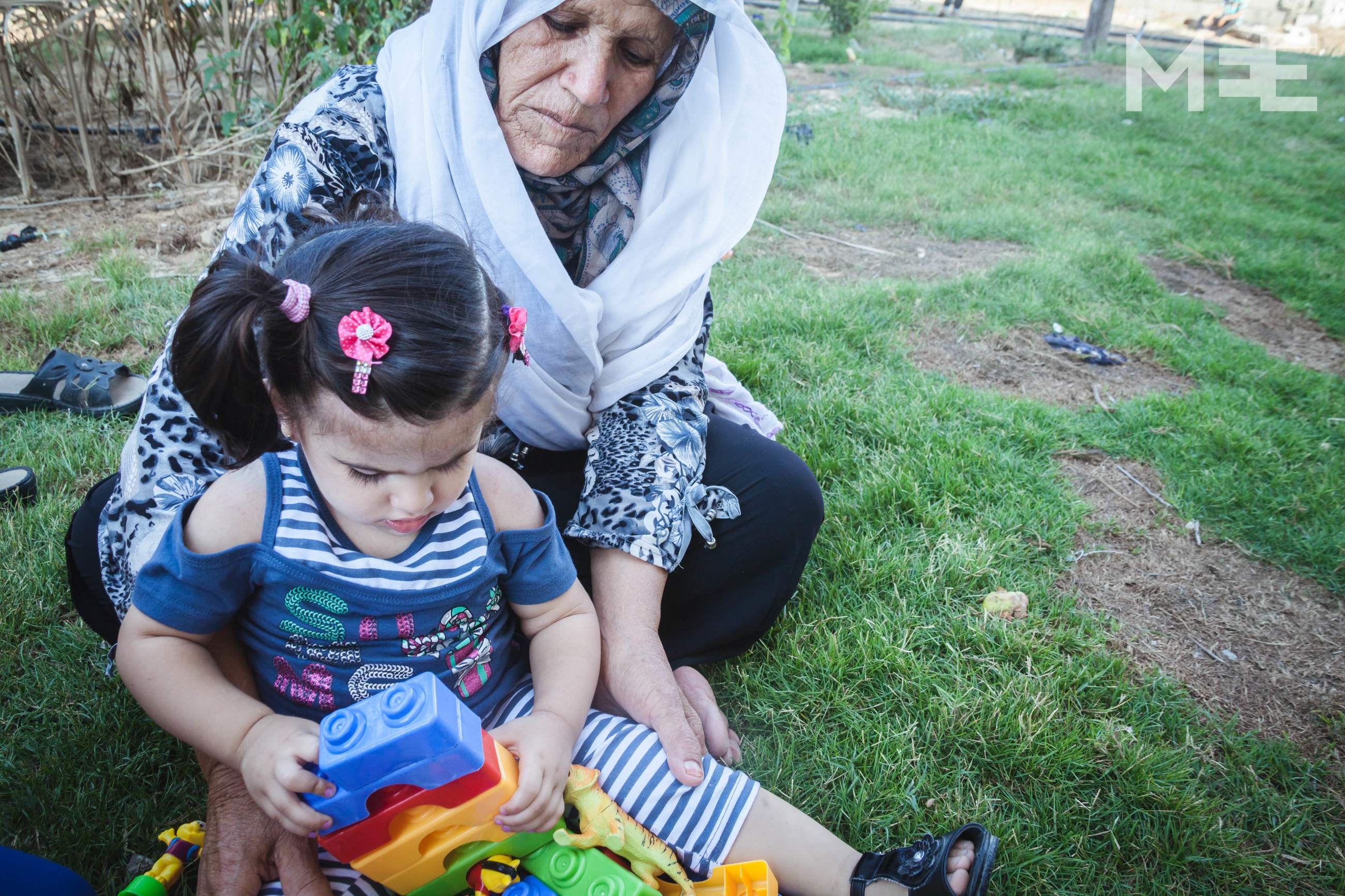
Back at her uncle’s home in al-Qarara neighbourhood in southern Gaza, two factions of the Abu Jaber family are now undecided over who will get to raise Jana and Yamen. All family members are passionate about wanting to take responsibility for the children’s care. (MEE/Andrea Dicenzo)
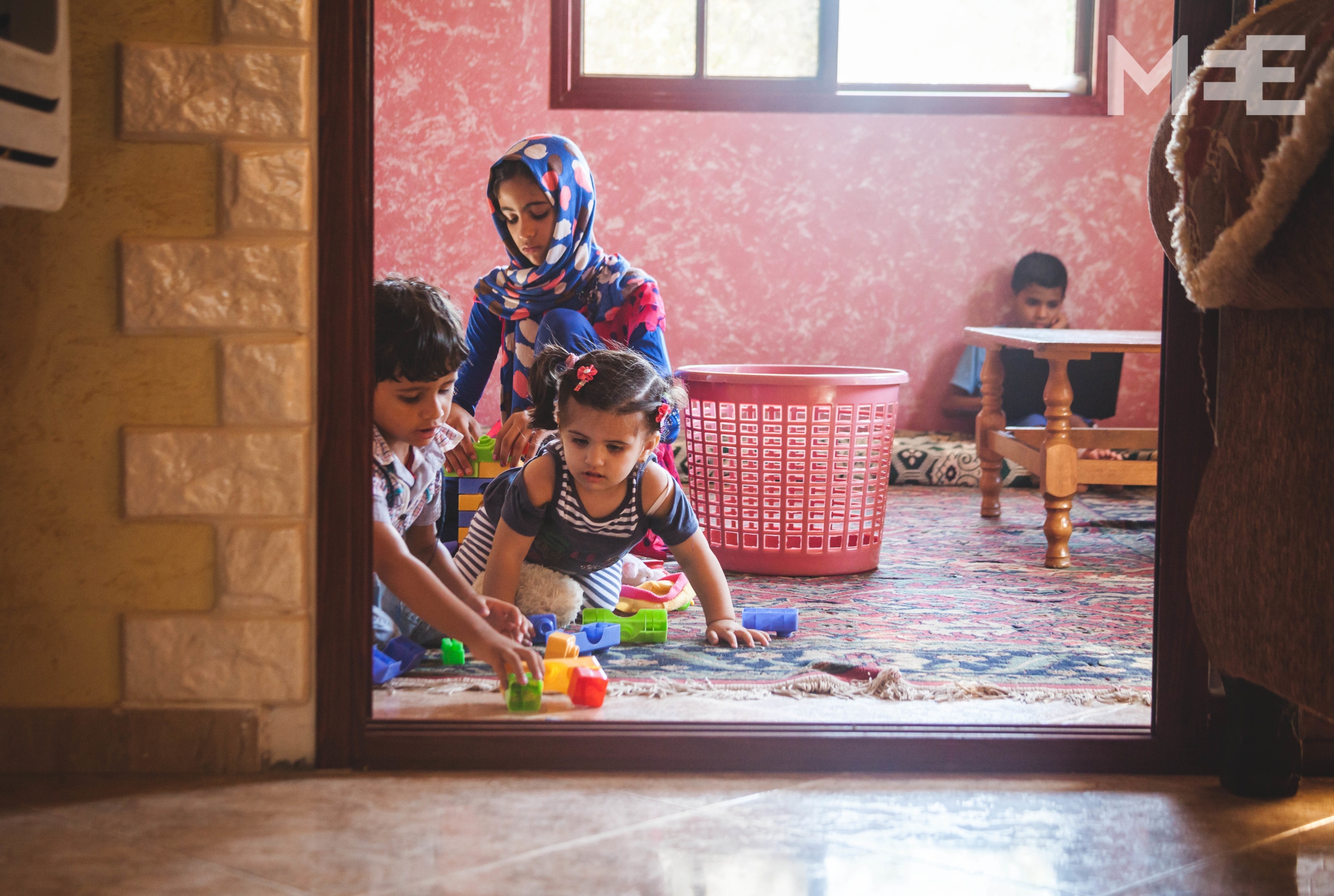
Having extremely supportive extended families - aunts, cousins, grandparents - is an essential part of psychological healing after the sustained trauma of Israel's most recent war, which lasted for 50 days. (MEE/Andrea Dicenzo)
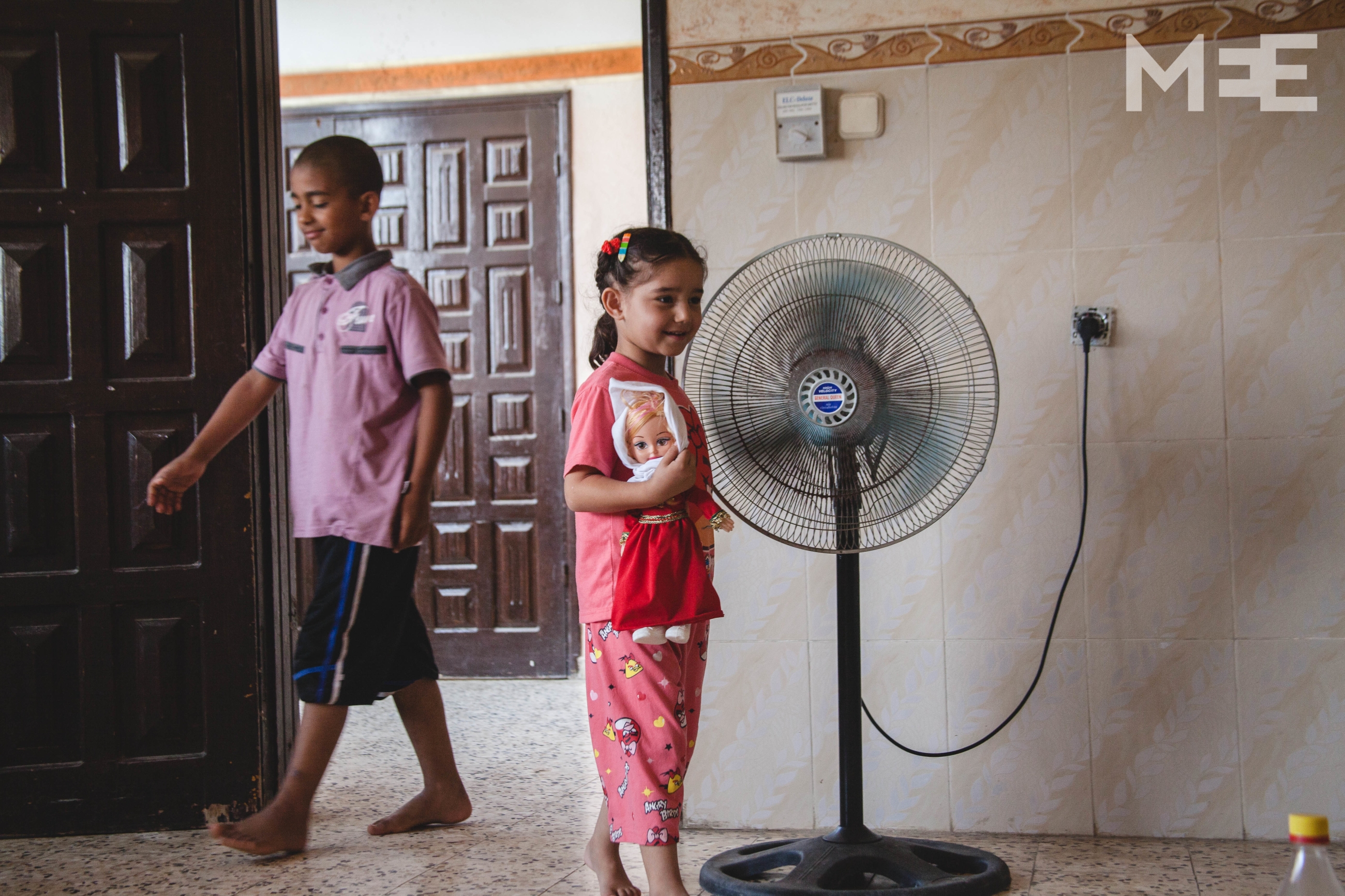
Having extremely supportive extended families - aunts, cousins, grandparents - is an essential part of psychological healing after the sustained trauma of Israel's most recent war, which lasted for 50 days. (MEE/Andrea Dicenzo)
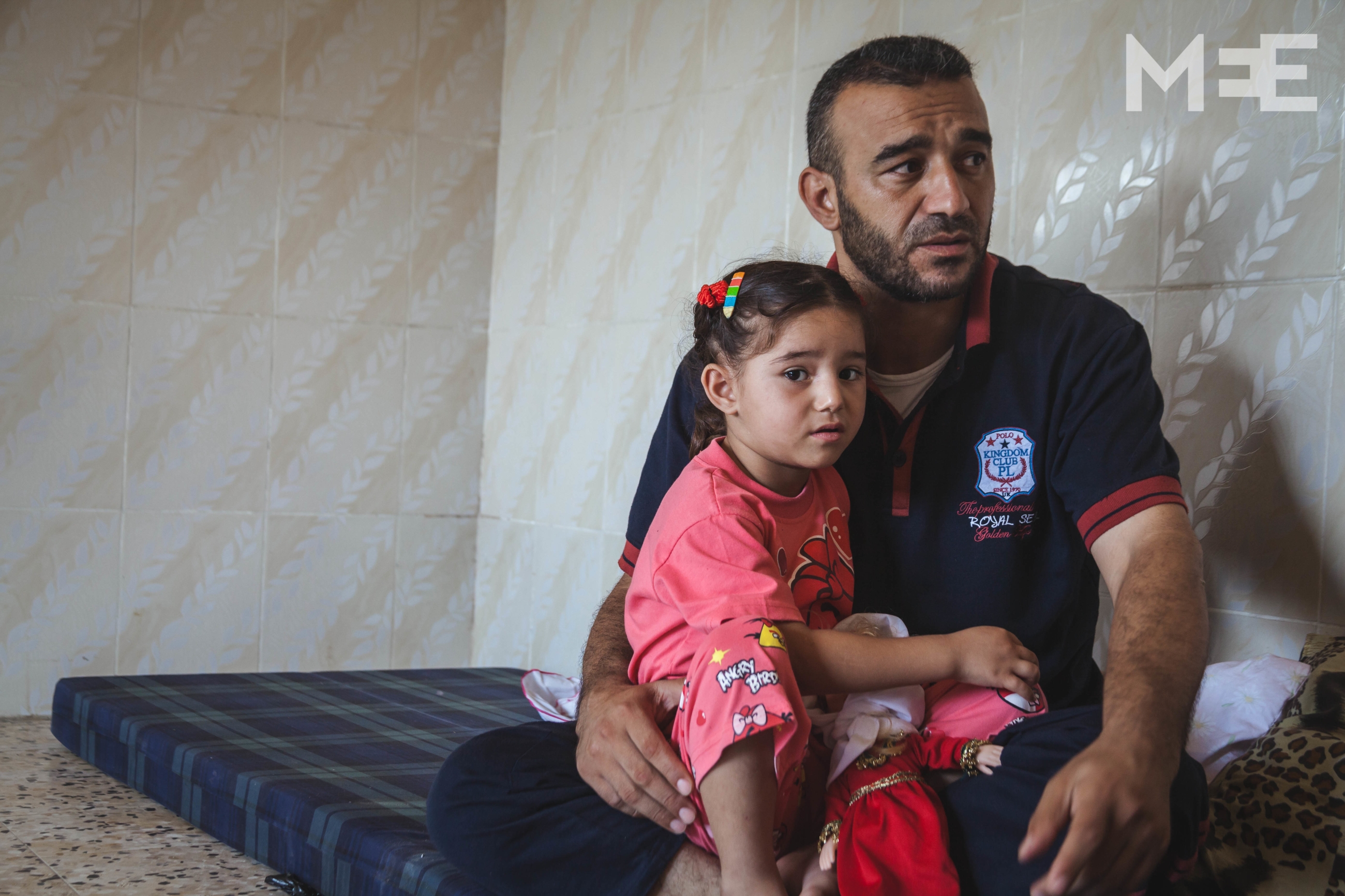
In Gaza, where Sunni Islam is practiced, it is common for men to marry more than once, which was the case with Shayma’s father. Shayma now lives with her father and his second wife. (MEE/Andrea Dicenzo)
Middle East Eye delivers independent and unrivalled coverage and analysis of the Middle East, North Africa and beyond. To learn more about republishing this content and the associated fees, please fill out this form. More about MEE can be found here.

